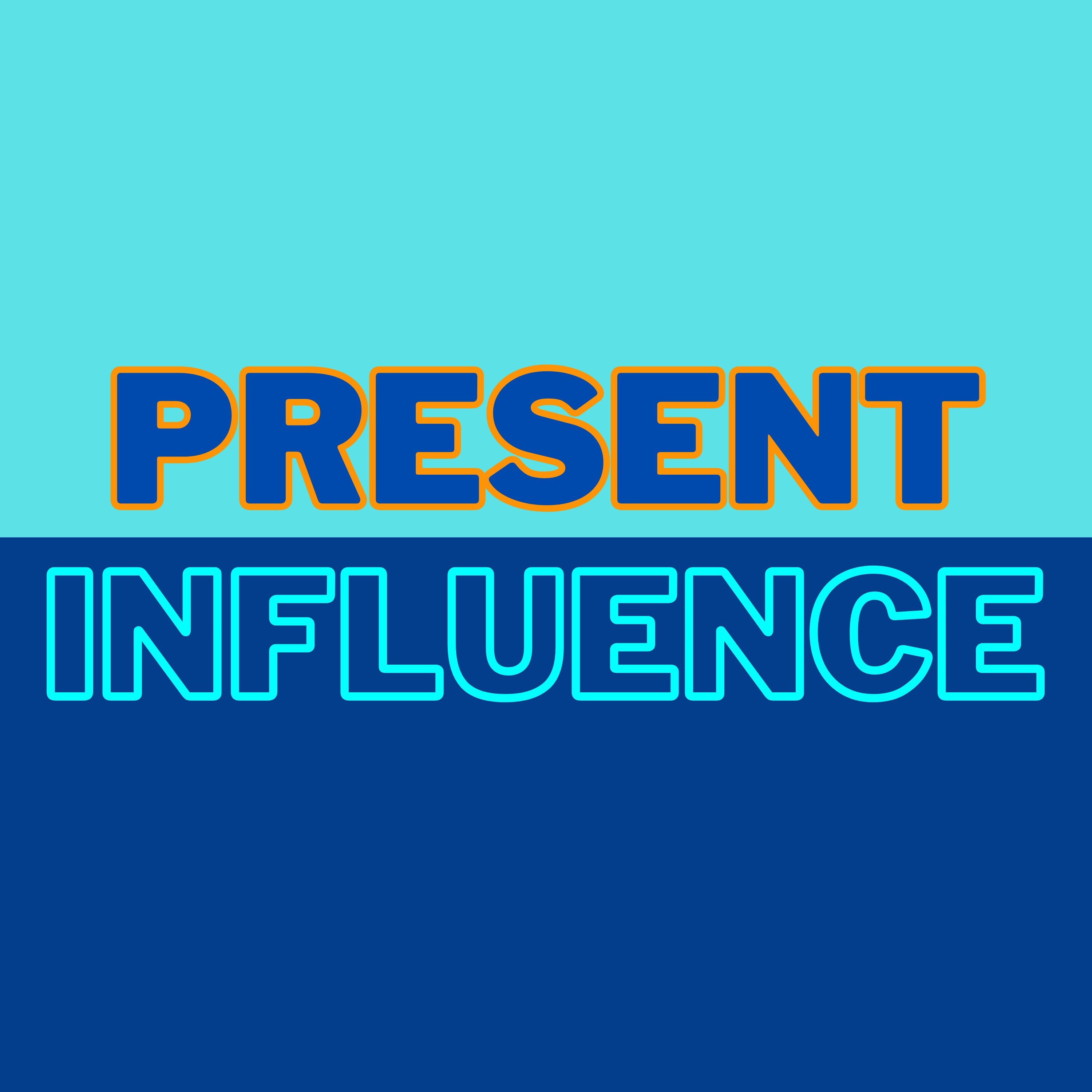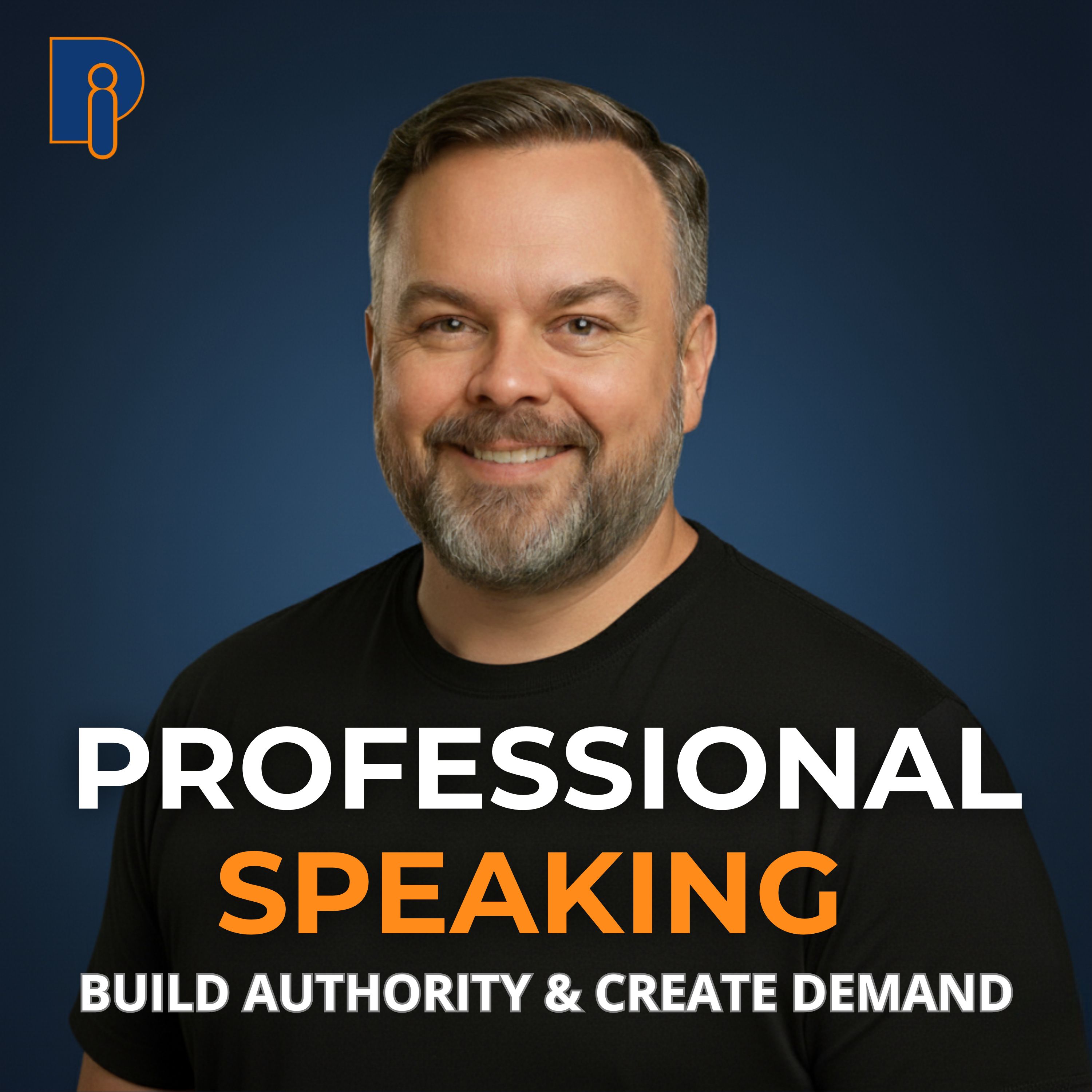Episode 226
Unity: A Speaker's Gift for Ethical Influence
Harnessing Unity for Impactful Public Speaking: Insights from Robert Cialdini
In this episode, the concept of 'unity' as an influential principle from Robert Cialdini's revised book 'Influence: The Psychology of Persuasion' is explored. The host discusses the emotional power of unity in connecting with audiences and emphasizes that unity is about finding shared values and experiences rather than pretending to be the same. Examples and stories are provided, including techniques for creating a sense of belonging and ethical connection in public speaking. The episode also considers the potential misuse of unity and advises speakers to use it as a means of fostering inclusive and meaningful connections.
00:00 Overcoming Imposter Syndrome
00:20 Introducing Cialdini's Principle of Unity
00:43 Understanding Unity and Shared Identity
01:24 Creating Unity as a Speaker
02:30 Real-Life Examples of Unity
03:24 Ethical Use of Unity in Speaking
04:05 Practical Tips for Building Unity
05:59 The Power and Danger of Unity
07:01 Conclusion and Next Steps
Go to presentinfluence.com to take the Speaker StrengthsFinder Quiz and discover your greatest strengths as a speaker as well as where to focus for growth. For speaking enquiries or to connect with me, you can email john@presentinfluence.com or find me on LinkedIn
You can find all our clips, episodes and more on the Present Influence YouTube channel: https://www.youtube.com/@PresentInfluence
Thanks for listening, and please give the show a 5* review if you enjoyed it.
Mentioned in this episode:
The Strategic Speaking Business Audit
Take this quick quiz to find out where and why your speaking business is leaking opportunities.
Transcript
Do you ever feel like you are not one of them?
2
:You know, the old imposter syndrome?
3
:Maybe you've questioned whether you
belong on certain stages or with certain
4
:audiences or in certain industries?
5
:Well, lemme tell you something.
6
:Unity isn't about pretending
that we're all the same.
7
:It's about discovering what we
share, even when we are different.
8
:In this episode, we're exploring
one of Robert Cialdini's most
9
:underrated, but emotionally
powerful principles of influence.
10
:The bonus principle in his
revised book influenced the
11
:psychology of persuasion; unity.
12
:When it's used, well, it connects us.
13
:And when it's abused, it divides us.
14
:And for speakers, it can be the difference
between being heard and being remembered.
15
:So what is unity?
16
:Why does it even matter?
17
:Cialdini describes unity
as shared identity.
18
:When people feel one of us with
you, they become more open,
19
:trusting, and responsive, and
it's more than liking or rapport.
20
:It taps into who we are.
21
:Our essence, our values, our emotions.
22
:So unity can come from all these places.
23
:Shared values, shared experiences,
struggles, shared affiliations,
24
:culture, nationality, faith generations.
25
:As a speaker, the more you can
create the US feeling, the more
26
:powerful your impact is going to be.
27
:Here's the key.
28
:You don't need to be
exactly like your audience.
29
:You just need to find where your
experiences or values intersect.
30
:So let me share with you a little
story for a client I was working
31
:with recently who said to me that
he didn't belong in corporate.
32
:He actually said to me, I don't think
I can speak to corporate audiences.
33
:I've never worked in that world.
34
:Come from a completely
different background.
35
:I said, well, perfect.
36
:That actually might be your advantage.
37
:Why?
38
:Because he wasn't just another suit.
39
:He had outside insight.
40
:And when we reframed it, his difference
was not so much of a gap as a gift.
41
:I showed him how to chunk out from
specific industry examples and
42
:jargon to shared human experiences.
43
:So it might be, instead of saying sales
teams, you might talk about people
44
:with goals instead of boardrooms.
45
:Talk about places where
decisions and doubt coexist.
46
:His message didn't need corporate
polish, it just needed a bit more
47
:of a universal emotional core.
48
:And when you connect to
that, everybody listens.
49
:I've had the experience of being
an outsider on the inside and
50
:many times, a few recent examples
over the past several years.
51
:Uh, one was being the only Gen
X person in a startup, mostly
52
:comprised of millennials.
53
:So different pace, different
references, different expectations.
54
:But there was also a time when I was
one of the only British people and the
55
:only openly atheist person, I think in
a mostly Christian American company.
56
:Now, whilst this is just a suspicion,
I, I felt that these differences
57
:particularly may have played a big
part when layoffs were coming up
58
:and the company was making cutbacks.
59
:So unity or the lack of it
can be subtle, but it is real.
60
:And that's why I speak from
experience when people don't
61
:feel like you're one of us.
62
:They disconnect faster, but you
don't need to fake belonging.
63
:You just need to create bridges.
64
:So how do speakers create unity ethically?
65
:And you know, we're all
about the ethics here.
66
:So how do we create unity on
stage without pretending to be
67
:something we're not so using?
68
:We language are over and over again.
69
:Inclusive language, you or I,
we gonna make a big difference.
70
:Share stories that tap into more
universal values and emotions.
71
:So examples could be fear,
joy, uncertainty, hope we
72
:all have those experiences.
73
:Call out common experiences,
even small ones.
74
:Anyone else?
75
:Ever forget what you're
about to say on stage.
76
:Mirror the values of your
audience, not their opinions.
77
:Show up early, stay late.
78
:Connect personally.
79
:Here's a tip I shared
earlier in this series.
80
:If you are speaking at a company, connect
with some team members beforehand by, get
81
:some insight into where you're going.
82
:If you don't have access to
that, immediately ask for it.
83
:Ask to be able to be connected with
a few people so you can get a bit of
84
:a sense of what's going on for them,
85
:and you can potentially then directly
address what's going on for them
86
:and reference it so that they're
gonna feel that you really see them,
87
:that you are part of their team.
88
:Even though you are not For that,
for that time that you're on stage,
89
:you can be so, learn their names,
mention them during your talk.
90
:People will feel seen, and people will
feel, all right, you are one of us.
91
:Bookers will see it as well.
92
:They'll see it in the feedback.
93
:They'll remember that
you did this as well.
94
:Going, that extra mile, being proactive
is always very noticeable and keeping
95
:in contact with them, with your CRM,
even if it's their bookings coming up.
96
:Even if you're not asking for a gig from
them, maybe just reach out and say, hi,
97
:from time tonight, I remember that gig.
98
:We appreciate you.
99
:Here's something I found that might
actually be of interest to you and to
100
:your industry, and send that over to them.
101
:Stay in contact.
102
:Here's something I think is important
and we're gonna talk about chunking
103
:up and really chunking up is
about getting outta the specifics.
104
:The more general, so let's say your story
is about launching a product that failed.
105
:You could chunk that up into a
universal value, so could be the
106
:courage to try something new.
107
:Learning from failure and
feeling exposed and vulnerable.
108
:Suddenly, it doesn't matter
if your audience is made up of
109
:executives, teachers, or teenagers.
110
:They'll get it because you move
from the specific to the universal.
111
:Think of unity like a campfire.
112
:People don't gather around it because
they all come from the same place.
113
:They gather because it's warm,
it's welcoming, and it lights
114
:up what we all have in common.
115
:As a speaker, your job isn't
to tell people where to sit.
116
:It's to keep a fire burning.
117
:Unity is a very powerful principle
of influence, weapon of influence.
118
:Cialdini does sometimes refer to these
things as weapons of influence, unity
119
:certainly can be used as a weapon as well.
120
:So it's very powerful and like
the campfire, it can burn you.
121
:History has shown us and right now is
showing us as well that shared identities
122
:can be used to exclude, to dehumanize,
to stigmatize even inside violence
123
:against people who are not like us.
124
:From nationalism to cult behavior and
beyond, we've seen it all too often.
125
:So always ask, is my use
of unity, bringing people
126
:together or pushing others out?
127
:Real leadership doesn't just rally
the ingroup, it welcomes the outliers.
128
:So here's your call as a speaker.
129
:Use unity not as a tool of
sameness, but as a path to deeper
130
:shared meaning and connection.
131
:Find common values,
speak to shared humanity.
132
:Be the one who lights the campfire
and says, come sit with us.
133
:If your more tools for ethical
influence and presentation skills,
134
:check the links in the description for
free speaker resources and trainings.
135
:And if this episode spoke to you
specifically, please like, subscribe
136
:and share it with the speaker.
137
:And if you haven't checked out the
whole series of episodes so far.
138
:Please do go and check them out.
139
:This is a whole playlist and mini
course, really about Robert Cialdini's
140
:influence principles specifically for
professional speakers and communicators.
141
:So whilst this may be the end of
Cialdini's Influence series, there
142
:are many more elements of influence
that we have to talk about and will
143
:be bringing up in future videos.
144
:So do stick around for those all you
need to be part of this in crowd is
145
:an interest in speaking and presenting
professionally or otherwise, and
146
:a desire to operate ethically, and
you are very welcome to join us.
147
:So until the next time we do connect, stay
present, stay united and stay influential.


